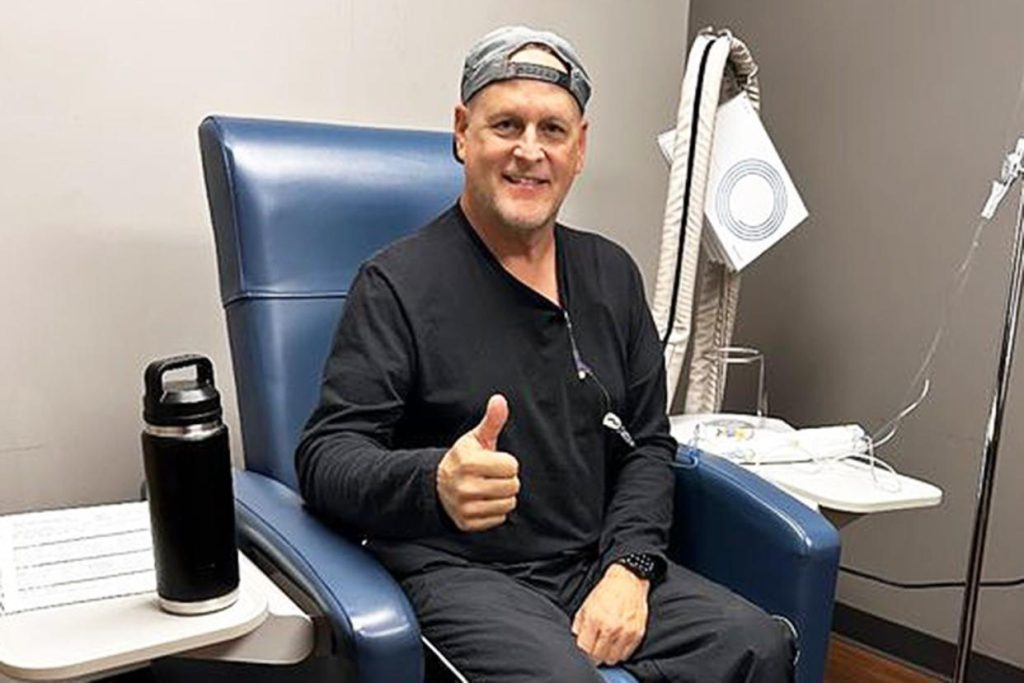American actor Dave Coulier talks about his battle with cancer.
The 65-year-old star of “Fuller House” talked more about the side effects of his treatment for stage 3 non-Hodgkin lymphoma, a blood cancer, on the most recent episode of the “Full House Rewind” podcast.
It has been quite the emotional roller coaster. Various impacts,” he stated. “And those who are watching or listening to the show and have been here before, you know that it’s a roller coaster because the side effects have side effects, and then you take a drug to counter that and this and that.”
Coulier went on to say that his body is “in a fight. It’s a little bit of an internal battle.” Non-Hodgkin lymphoma (NHL) is one of the most common cancers in the US, making up around 4% of all cancers, according to the American Cancer Society.
He added that “it’s this constant cocktail where your body is in fight or flight mode, and you’re just trying to adjust to, like, ‘Okay, how am I adjusting to steroids? How am I adjusting to the chemo cocktail? And then, how am I adjusting to all these other things?’”
In an interview with “Today” in November, the actor first revealed his diagnosis, telling the show’s co-anchor Hoda Kotb that he had been diagnosed five weeks earlier with “B cell lymphoma,” which he described as “aggressive.”

“The onset of this growing lymphoma in my groin area was very quick, so I said, ‘Something’s not right; I have a golf ball down here,'” he said to Kotb. “So we biopsied it, we took it out, and they said, ‘You know, we wish we had better news for you, but you have B-cell lymphoma; we need to get you into chemotherapy right away.'”
“Marla, I’ve spoken to a lot of folks who have had cancer throughout their lifetimes. Additionally, I believe that others have benefited greatly from the words of encouragement. So that, in my opinion, makes the trip through all of this worthwhile,” he said.
Coulier added, “It’s okay if I have to feel a little off-kilter for a few months.” “But it’s worth it just to be able to tell people that getting a mammogram, early screening, or colonoscopy is acceptable.”
“Early detection is crucial and, amazingly, it can save the lives of countless individuals.”


